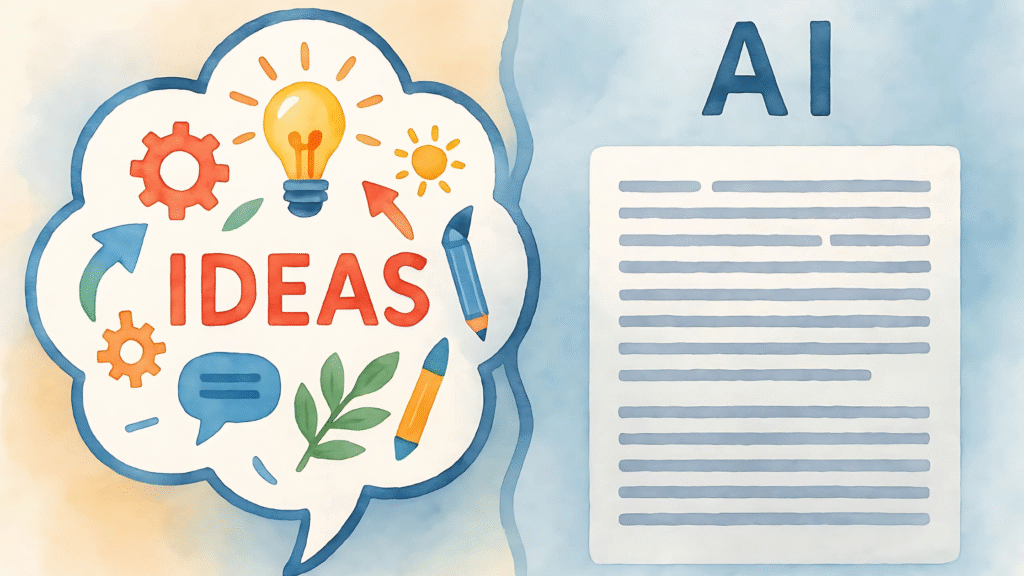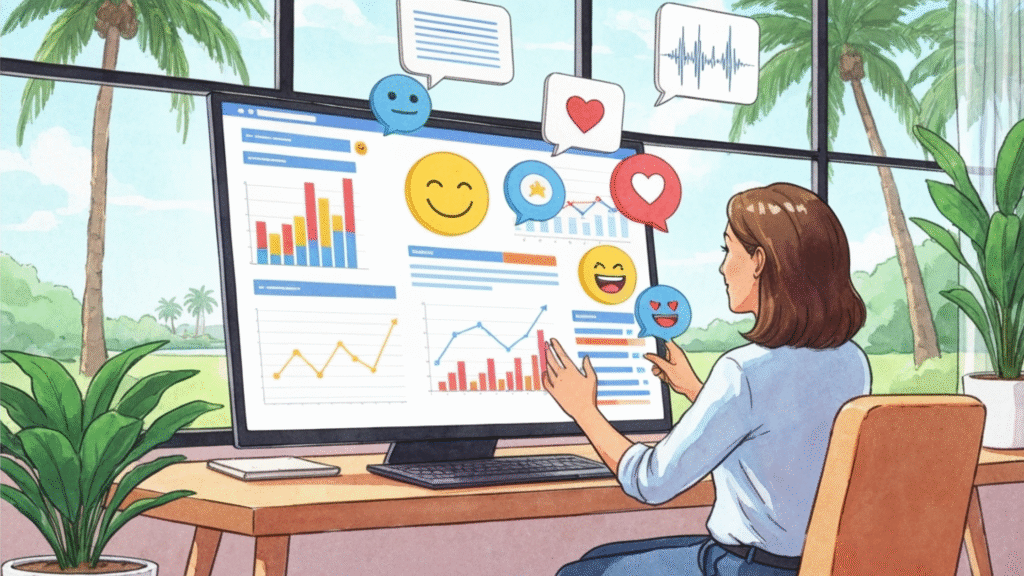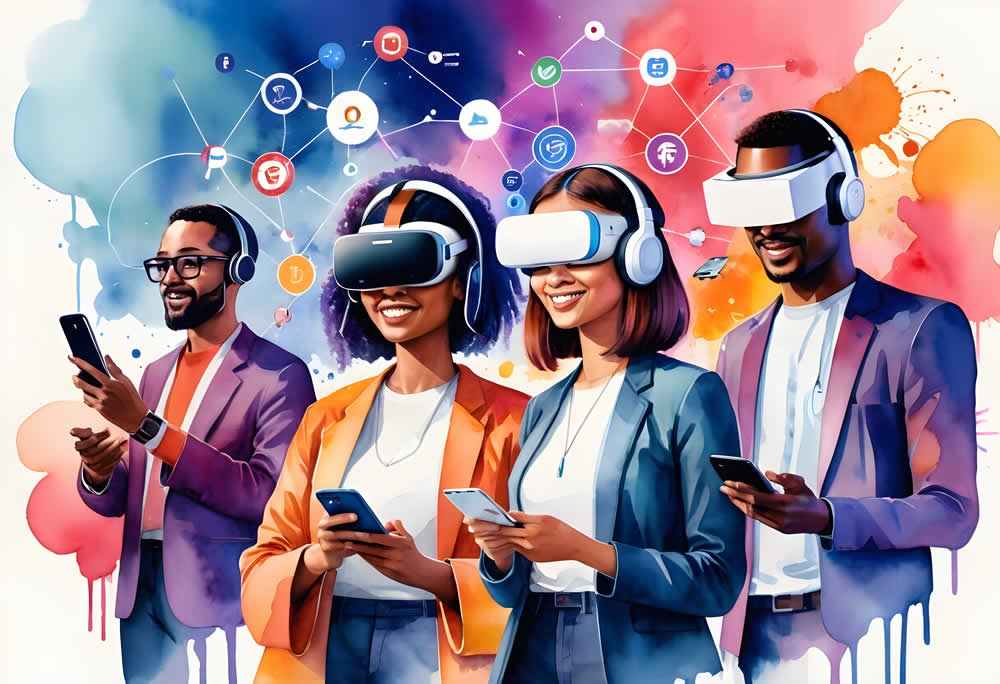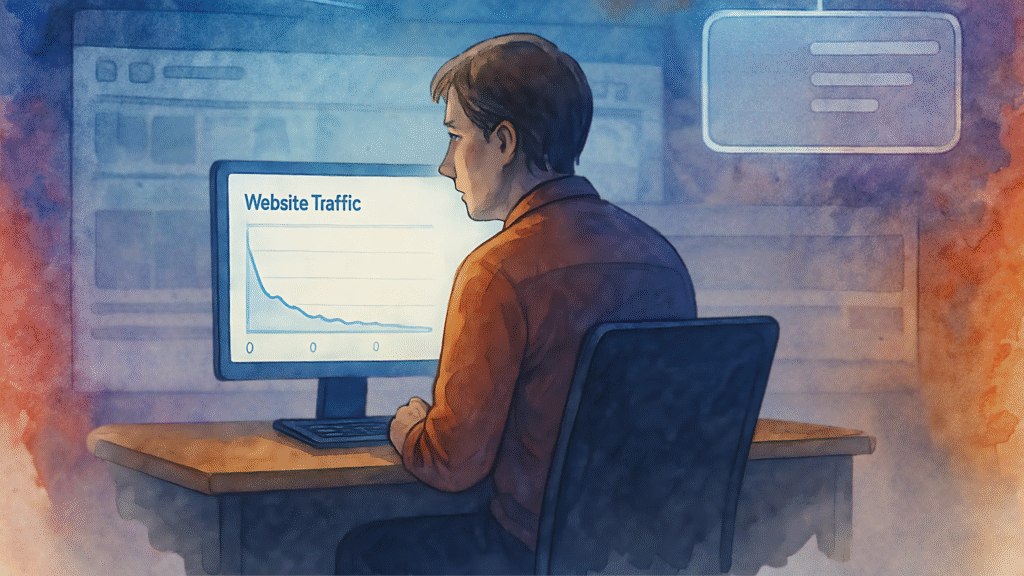The Coffee Shop That Changed Everything
Last Tuesday, our CEO walked into a new coffee shop in Bradenton expecting her usual caffeine fix. What happened next revealed a dangerous truth about customer experience that most businesses completely miss.
The barista, Miguel, greeted her enthusiastically: “First time here? Let me guess what you’d love based on your vibe.”
Before she could protest, he was crafting liquid art. When he handed her the cup: “This is our ‘Monday Warrior’ blend. I added an extra shot because you look like someone who’s about to tackle the world today.”
He was right about her big presentation that morning. The coffee was perfect.
But here’s the kicker: If Miguel had been wrong—if he’d misread her mood or made assumptions that felt invasive—that same gesture could have felt creepy instead of caring.
Key Insight: The difference between “wow” and “weird” often comes down to execution, not intention.
The Hidden Danger: Expectation Escalation
Here’s what no one talks about in customer experience circles: every memorable moment you create raises the bar for every future interaction.
Real Example: The Boutique Hotel Trap
We worked with a boutique hotel that mastered personalization:
- Researched guests before arrival
- Stocked favorite snacks
- Remembered coffee preferences
- Anticipated needs perfectly
Result? Five-star reviews poured in.
The Problem? When staff shortages meant they couldn’t deliver the same level of personalization, guests felt disappointed. Standard service now felt subpar because they’d been conditioned to expect magic.
This is called “hedonic adaptation” – where extraordinary becomes ordinary, and ordinary becomes insufficient.
The Solution: Consistency Over Spectacle
- Focus on reliable excellence before adding surprise elements
- Set expectations appropriately
- Train all staff to deliver baseline wow, not just your superstars
When “Authentic” Moments Become Corporate Theater
Harsh Truth: In 2025, customers can spot manufactured experiences from a mile away.
The Systematization Trap
We’ve seen businesses kill their own magic by trying to replicate successful wow moments:
Before: Handwritten note from the heart
After: Template “handwritten” notes
Before: Spontaneous generous gesture
After: Scripted “random” acts of kindness
Before: Personal connection
After: Checkbox on training manual
Case Study: The Retail Client Reality Check
One retail client learned this the hard way. After their sales associate’s genuine offer to let a customer try clothes at home generated buzz, they systematized it.
Result: Every customer got the same “generous” offer, and it felt like a sales tactic.
Takeaway: Authenticity can’t be automated, only enabled.
How to Scale Authenticity
- Train capabilities, not scripts – Teach emotional intelligence, not specific actions
- Hire for empathy – Look for people who naturally care about others
- Give autonomy – Let staff make small decisions to help customers
- Celebrate genuine moments – Share real stories, not manufactured ones
The Personalization Privacy Paradox
The Challenge: Customers want personalized experiences but feel creeped out by how much you know about them.
The Goldilocks Zone of Personalization
Too Little: “Dear Valued Customer” when you have their purchase history
Too Much: Mentioning specific locations or recent purchases that feel like surveillance
Just Right: Recommendations based on stated preferences, not tracked behavior
The New Rules for Personal Touch
| Do This | Instead of This |
| Ask for preferences explicitly | Assume based on data tracking |
| Reference past interactions naturally | Mention every detail you know |
| Offer relevant suggestions | Push products based on algorithms |
| Respect privacy boundaries | Use all available data |
Pro Tip: Make customers feel seen, not watched.
Why Your Customers Actually Prefer “Effortless” Over “Effortful”
Counterintuitive Truth: Customers don’t want you to work harder for them. They want you to make their lives easier.
Case Study: The Fitness Studio Revolution
A fitness studio we worked with learned this lesson. They replaced elaborate “VIP treatment” with simple friction removal:
Old Approach:
- Complex welcome packages
- Personal trainers calling to check in
- Elaborate member appreciation events
New Approach:
- Ridiculously easy class booking
- Equipment consistently available
- Simple, clear communication
Result: Member satisfaction increased dramatically.
The Effort Hierarchy (Most Important First)
- Remove friction – Make basic tasks effortless
- Anticipate needs – Solve problems before they arise
- Add delights – Layer on surprise moments
Building Sustainable Wow (Without Burning Out Your Team)
Reality Check: Creating constant wow experiences requires emotional labor from your team. If you’re not careful, that labor becomes unsustainable.
The Emotional Labor Problem
We’ve seen service teams burn out from pressure to constantly “surprise and delight.” The energy required to read customers, anticipate needs, and create magic is real work.
Sustainable Wow Strategy
Do This:
- Hire for emotional intelligence
- Rotate high-touch responsibilities
- Create systems that support authentic interactions
- Recognize and reward emotional labor
Avoid This:
- Forcing scripted enthusiasm
- Expecting every interaction to be magical
- Ignoring team burnout signals
- Measuring quantity over quality of connections
The AI Integration Opportunity
Smart approach: Use AI to handle predictable tasks so humans can focus on personal connections.
AI Handles:
- Data analysis and pattern recognition
- Routine communications
- Scheduling optimization
- Inventory management
Humans Handle:
- Emotional intelligence
- Creative problem-solving
- Relationship building
- Intuitive judgment calls
The New Framework for Authentic Customer Experience
Based on our work with 50+ businesses, here are the principles that create lasting wow:
- The Foundation First Rule
Make basic experiences effortless before adding layers of delight.
- The Explicit Preference Principle
Ask customers what they want rather than assuming based on data.
- The Capability Over Script Strategy
Train teams to recognize connection opportunities, not memorize actions.
- The Sustainable Surprise System
Design experiences that can be delivered consistently without team burnout.
- The Relationship Measurement Method
Track depth of customer connection, not frequency of wow moments.
What This Means for Your Business
The businesses thriving in 2025 aren’t the ones with the most elaborate wow strategies. They’re the ones that understand the psychology behind meaningful human connection and use technology to enable more of it, not manufacture it.
The bottom line: In a world where AI can do almost everything, genuine human connection becomes the ultimate competitive advantage.
Your Next Steps:
- Audit your current “wow” moments – Are they scaling authentically?
- Map your friction points – Where are you making customers work too hard?
- Survey your team – Are they energized or exhausted by customer experience demands?
- Test the Goldilocks Zone – Find your sweet spot of personalization
Frequently Asked Questions
Q: How do you measure authentic customer experiences? A: Focus on relationship metrics (referral rates, forgiveness when things go wrong, depth of engagement) rather than transaction metrics.
Q: Can small businesses compete with large companies on personalization? A: Absolutely. Small businesses have the advantage of genuine human connection at scale. Use that.
Q: How do you know if you’re crossing the line from personal to creepy? A: Ask yourself: “Would I want a business to know this about me?” If the answer is no, don’t use that information.
Q: What’s the biggest mistake businesses make with customer experience? A: Trying to systematize authentic moments instead of creating conditions where authentic moments can happen naturally.
—————————————————————————————————————–
At Communica PRO, we help businesses build systematic approaches to authentic customer connection. Want to explore how this applies to your specific situation? Let’s talk about creating sustainable wow experiences that actually work.











22 Comments. Leave new
Can you be more specific about the content of your article? After reading it, I still have some doubts. Hope you can help me. https://www.binance.com/hu/register?ref=IQY5TET4
Can you be more specific about the content of your article? After reading it, I still have some doubts. Hope you can help me.
Your point of view caught my eye and was very interesting. Thanks. I have a question for you.
I don’t think the title of your enticle matches the content lol. Just kidding, mainly because I had some doubts after reading the enticle.
Thanks for sharing. I read many of your blog posts, cool, your blog is very good.
Your point of view caught my eye and was very interesting. Thanks. I have a question for you. https://www.binance.info/register?ref=IHJUI7TF
Your point of view caught my eye and was very interesting. Thanks. I have a question for you. https://accounts.binance.info/pt-PT/register-person?ref=KDN7HDOR
Can you be more specific about the content of your article? After reading it, I still have some doubts. Hope you can help me.
Your point of view caught my eye and was very interesting. Thanks. I have a question for you. https://accounts.binance.com/da-DK/register-person?ref=V3MG69RO
Your article helped me a lot, is there any more related content? Thanks!
I don’t think the title of your article matches the content lol. Just kidding, mainly because I had some doubts after reading the article.
Can you be more specific about the content of your article? After reading it, I still have some doubts. Hope you can help me.
Can you be more specific about the content of your article? After reading it, I still have some doubts. Hope you can help me.
Can you be more specific about the content of your article? After reading it, I still have some doubts. Hope you can help me.
Thank you for your sharing. I am worried that I lack creative ideas. It is your article that makes me full of hope. Thank you. But, I have a question, can you help me?
Can you be more specific about the content of your article? After reading it, I still have some doubts. Hope you can help me. https://accounts.binance.com/ru/register?ref=O9XES6KU
Your point of view caught my eye and was very interesting. Thanks. I have a question for you.
Your article helped me a lot, is there any more related content? Thanks!
Thanks for sharing. I read many of your blog posts, cool, your blog is very good.
Can you be more specific about the content of your article? After reading it, I still have some doubts. Hope you can help me.
Your point of view caught my eye and was very interesting. Thanks. I have a question for you.
I don’t think the title of your article matches the content lol. Just kidding, mainly because I had some doubts after reading the article. https://www.binance.info/uk-UA/register?ref=XZNNWTW7